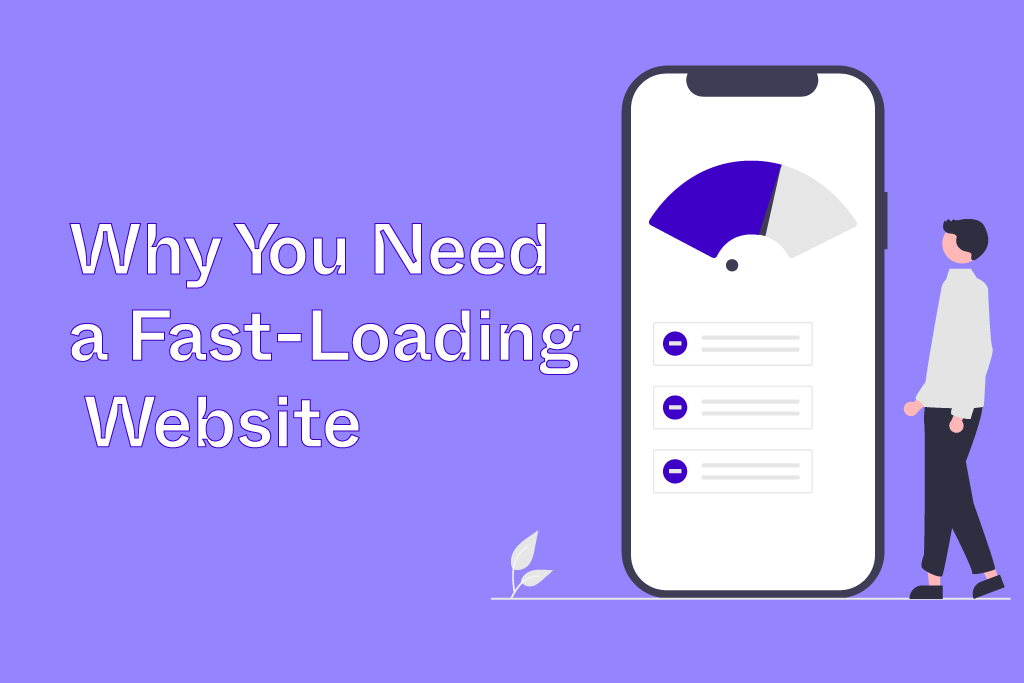If you’re running a website, you know how important it is to provide a great user experience for your visitors. One crucial aspect of that experience is having a fast-loading website. A fast-loading website not only improves user satisfaction and engagement, but it can also have a significant impact on your search engine rankings and online success. In this post, we’ll explore why having a fast-loading website is so important and share some tips for optimizing your site’s speed and performance.
Why Website Speed Matters
In today’s digital age, users expect websites to load quickly and smoothly. In fact, research has shown that 40% of users will abandon a website if it takes more than 3 seconds to load. This means that if your website is slow, you could be losing potential customers and visitors before they even have a chance to see what you have to offer.
But website speed isn’t just important for user experience. It’s also a key factor in search engine optimization (SEO). Google has stated that website speed is a ranking factor in its search algorithm, meaning that faster-loading websites may have an advantage in search results over slower ones. This is because Google wants to provide the best possible search experience for its users, and slow-loading websites can detract from that experience.
In addition, website speed can also have an impact on other important metrics like bounce rate and conversion rate. If your website is slow, users may become frustrated and leave before taking any action, resulting in a higher bounce rate. And even if they do stay on your site, slow load times can make it more difficult for them to complete actions like filling out a form or making a purchase, which can hurt your conversion rate.
As the internet becomes more crowded and users become more demanding, website speed has become a critical factor in online success. Slow-loading websites can drive away potential customers and hurt your search engine rankings. In this post, we’ll explore why you need a fast-loading website and how to achieve it.
User Experience
One of the most important reasons to have a fast-loading website is for a better user experience. People are impatient online, and if your website takes too long to load, they are likely to leave and go to a competitor’s site instead. In fact, research shows that 40% of users will abandon a website if it takes more than 3 seconds to load.
By optimizing your website for speed, you can keep users engaged and reduce your bounce rate. A fast website will also encourage users to stay longer and explore more pages, leading to a higher conversion rate and increased revenue.
Search Engine Rankings
Another important reason to have a fast-loading website is for better search engine rankings. Google has publicly stated that website speed is a ranking factor, and slower websites may be penalized in search results.
A fast website will also help search engine crawlers to index your pages more efficiently, which can lead to higher visibility and more traffic. By optimizing your website for speed, you can improve your chances of ranking higher in search results and attracting more organic traffic.
Mobile Optimization
In today’s mobile-first world, having a fast-loading website is more important than ever. Mobile users are even more likely to abandon slow-loading websites than desktop users, and they expect a seamless experience on their devices.
By optimizing your website for mobile devices and ensuring fast load times, you can provide a better user experience for your mobile audience and attract more traffic from mobile search results.
How to Achieve a Fast-Loading Website
Now that you understand why a fast-loading website is so important, how can you achieve it? Here are some tips to help you optimize your website for speed:
- Minimize HTTP requests: Reduce the number of requests your website makes to the server by minimizing images, scripts, and stylesheets.
- Optimize images: Compress images to reduce their file size without sacrificing quality.
- Use caching: Use browser caching and server-side caching to speed up page load times.
- Reduce server response time: Choose a fast and reliable web host and use a content delivery network (CDN) to distribute your website’s content.
- Use a website speed optimization tool: Use a tool like Google’s PageSpeed Insights to identify issues and optimize your website for speed.

